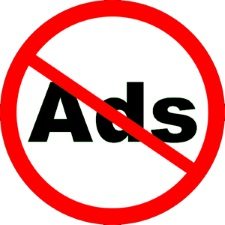Top 10 Criticism or Economic Objections of Advertising
We can say that in the case of products that have come to stay as near necessaries, advertising may be at least reduced. Perhaps this may be one of the reasons for subjecting advertising to severe criticisms. Various objections against it may be listed as follows:

Table of Contents
- 1 Criticisms or Economic Objections of Advertising
- 1.1 1. Advertising is not productive
- 1.2 2. Advertising forces people to desire and buy articles which, in fact, are not within their means
- 1.3 3. Advertising simply multiplies the needs
- 1.4 4. Advertising increases the cost of goods
- 1.5 5. The monopoly argument
- 1.6 6. Advertising of an established product does not make sense
- 1.7 7. Product Proliferation
- 1.8 8. Inefficient Manufacturers Stay in Business
- 1.9 9. Barriers to Entry
- 1.10 10. Advertising and Propensity to Consume
Criticisms or Economic Objections of Advertising
1. Advertising is not productive
It is true that advertising does not produce any tangible goods. But all productive work need not necessarily result in producing tangible goods. On the other hand, advertising renders a very valuable service. Services are always intangible. The service rendered by advertising is highly necessary, especially when one has to choose from amongst dozens of products which are similar in most respects. Advertising facilitates choice which, in turn, leads to satisfaction.
2. Advertising forces people to desire and buy articles which, in fact, are not within their means
It is true that advertising arouses interest for buying. But there is no physical force exerted on customers to buy things. Moreover, cautious people do not fall into “cheap trap”, a term very often used to condemn advertising.
3. Advertising simply multiplies the needs
It just takes business from one concern and gives it to another. For example, people today are acquainted with the uses of soap, tooth-paste, talcum power. When a new kind of talcum powder is introduced, advertising will only help to shift the demand from one product in favor of another. But this is not entirely true. Advertising also helps in the extension of demand.
4. Advertising increases the cost of goods
In a sense, it is true because expenses on it form a part of the total cost. But here one forgets the various benefits derived from it. Moreover, advertising influences saving on the side of distribution cost. Advertising makes distribution easier. It also reduces distributor’s cost. They sell a highly advertised brand at a lesser price, and so at a lesser margin. It builds up repeat sales for distributors.
5. The monopoly argument
The main motive of advertising is to emphasis the brand name. This emphasis makes the consumer to become a slave of a particular brand. The best answer to this argument is that it is the age of the survival of the fittest. Moreover, all are free to advertise, so it actually helps in not creating any monopolistic effect.
6. Advertising of an established product does not make sense
Products have life cycles, and need advertising (of course of a different nature) all through their life.
7. Product Proliferation
Critics of advertising point out that advertising encourages unnecessary product proliferation. It leads to the multiplication of products that are almost identical, resulting in wastage of resources which could otherwise have been used to produce other products.
8. Inefficient Manufacturers Stay in Business
One of short-term effects of advertising is that it can enable inefficient manufacturers to sell their substandard products by extensive advertising and thus stay in business. This is detrimental to consumers if they are lured by advertisements into buying low-quality products.
9. Barriers to Entry
There is. a general belief that advertisements promote industrial concentration. The extent of such concentration may vary with the character of the individual trade, the advertisability of the product and the technical conditions of its production. However, studies on this subject are not conclusive. The evidence of positive association between advertising and concentration of industries is only weak as indicated in a study by Telsen
10. Advertising and Propensity to Consume
It is generally believed that advertising raises the propensity to consume. While this may be desirable for industrial nations, can a developing economy afford a high propensity to consume? Arguments cited in favor of higher propensity are the following
- Consumption stimulates productivity. People are motivated to work harder and earn more in order to satisfy their needs. This extra effort on their part also increases productivity and helps develop the economy.
- Advertising for mass-consumption goods can help in gradually reducing disparities and breaking down barriers, as those between the urban elite and others, by making more products available even in rural areas.
Rising the propensity to consume can be undesirable as it can lead to conspicuous consumption. Thus, money can be frittered away in non essentials. It is also argued that the higher the propensity to consume, the lesser will be the savings. This leads to problem of capital formation and so investment may be hindered. But supporters of this view ignore the fact that advertising has been used as a very potent tool for promoting banking services and saving habits and for raising funds from the public for investment in equity and debenture capital and fixed deposits.


